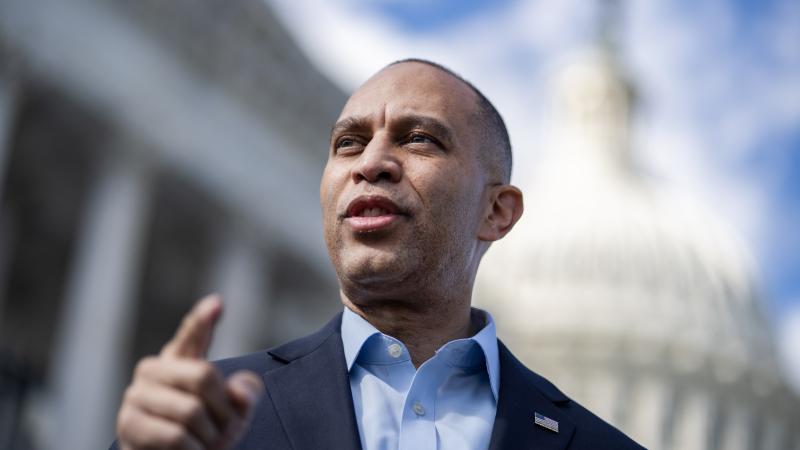Democrats embrace Biden plan to mold car market with $200 billion subsidy for electric vehicles
Package to include consumer purchase rebates and tax incentives to expand network of charging stations.
Colorado Democratic Sen. Michael Bennet applauded President Joe Biden's proposal to spend nearly $200 billion to prop up the electric vehicle market as part of his $2.25 trillion American Jobs Plan.
"I view this as our best opportunity in decades to make the long-term investments we have put off for years," Bennet said on a conference call hosted by Climate Power on Wednesday. "The American Jobs Plan puts out $40 billion in our natural infrastructure to restore our forests, protect our watersheds — some of that is based on my Outdoor Restoration Partnership Act that I wrote as a result of the fires we've seen.
"Hundreds of billions of dollars in the proposal to expand clean energy infrastructure and the importance of including clean energy standards would dramatically reduce carbon emissions from electricity. And nearly $200 billion in investments for the deployment of electric vehicles, I could go on."
Currently, the federal tax rebate for consumers who purchase fully electric cars is $7,500. The rebate could increase to $10,000 under the Biden proposal, which hasn't been formally drafted into legislation yet.
"It will give consumers point of sale rebates and tax incentives to buy American-made EVs, while ensuring that these vehicles are affordable for all families and manufactured by workers with good jobs," reads the White House fact sheet about Biden's plan. "It will establish grant and incentive programs for state and local governments and the private sector to build a national network of 500,000 EV chargers by 2030, while promoting strong labor, training, and installation standards."
New Mexico Democratic Sen. Martin Heinrich said Biden's plan is needed to help bring electric vehicle chargers to "every corner" of the U.S.
"This is our chance to build charging infrastructure in every corner of our nation for the rapidly growing fleet of electric vehicles," Heinrich said, "and it's our best opportunity to stand up for a 21st century Civilian Climate Corps that empowers a whole new generation of Americans to restore our landscapes and open up new opportunities on our public lands including to sequester more carbon."
Companies like General Motors and Volkswagen have abandoned manufacturing vehicles with hybrid engines to focus on fully electric plug-in vehicles instead.
In 2020, 296,000 EVs were sold in the U.S. compared to 331,000 the year prior.
Toyota Motors President Akio Toyoda has warned that car manufacturers moving to fully electric vehicles could make automobiles unaffordable for the average person. A January 2021 survey shows that some consumers do not see electric cars as a viable option due to the mile range of batteries as well as long recharging times compared to filling internal combustion engines with gasoline or diesel fuel.
Despite this, Senate Democrats are supporting Biden's proposed $200 billion plan that includes replacing diesel vehicles with fully electric vehicles for the federal government, public schools and the U.S. Postal Service.
His proposal would "replace 50,000 diesel transit vehicles and electrify at least 20 percent of our yellow school bus fleet through a new Clean Buses for Kids Program at the Environmental Protection Agency, with support from the Department of Energy."
















